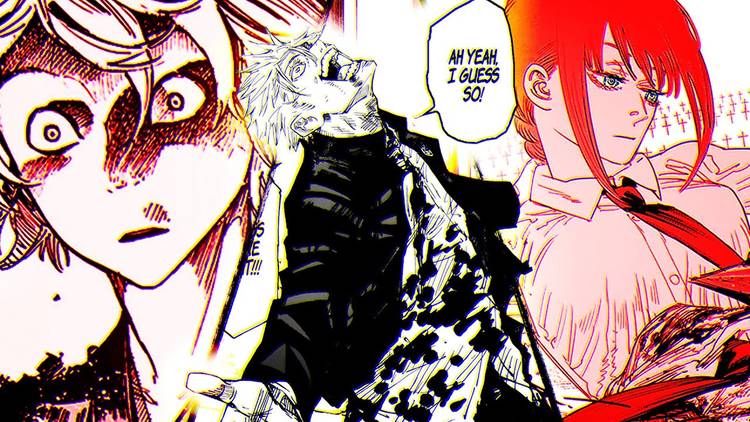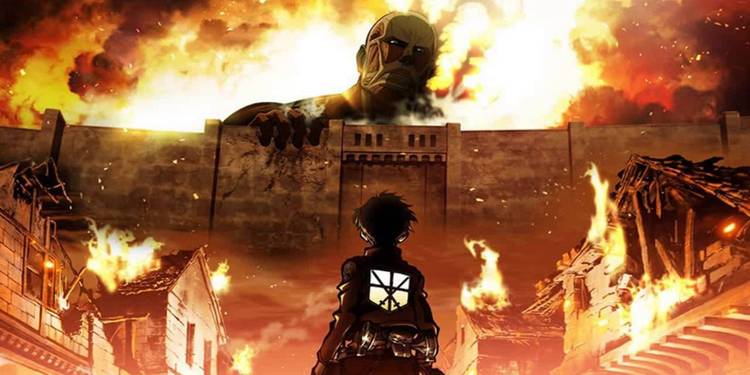
Gaining worldwide popularity in the early 2010s, Attack on Titan helped start a new surge in popularity for anime and manga. A dark and oftentimes violent series, it was fairly far removed from the anime that many in the West had grown up watching. This has led to comparisons with several similar modern anime, even if the grouping is mostly erroneous.
The “Dark Trio” of Shonen is currently taking the anime/manga world by storm due to their darker, more sinister content. This might evoke Attack on Titan, but both timing and genre separate the four franchises in question. Here’s why Attack on Titan isn’t exactly a peer of Chainsaw Man in the way that some assume.
Attack on Titan Preceded the Shonen Dark Trio

The Dark Trio is made up of Hell’s Paradise, Jujutsu Kaisen and Chainsaw Man (though some incorrectly put Demon Slayer in the place of the first of these franchises). They’re referred to as such due to their violent and gory concepts, with demons and dismemberment being somewhat prominent. These darker and gritter stories contrast quite a bit with franchises such as Dragon Ball Z or the 2000s shonen trinity made up of Naruto, One Piece and Bleach.
The main reason why Attack on Titan isn’t lumped in with the Dark Trio is that it came out long before they did. These three franchises began as manga in 2018, whereas Attack on Titan first started its publication in 2009. That’s almost a decade before the Dark Trio began, making Attack on Titan as much a part of the Dark Trio as it is the Shonen Big Three. It’s not just the time period of its release that separates the four franchises, however, with AoT having another big difference.
Attack on Titan’s Premise Is Far Different

In the case of the Shonen Dark Trio, their stories and concepts remain firmly in the realms of supernatural horror and fantasy. Demons and similar monsters make up the cast and the villain roster, making these franchises essentially modern equivalents to the aforementioned Bleach and classic ’90s series Yu Yu Hakusho. This genre unites the Dark Trio through similar plot threads, but Attack on Titan isn’t quite on the same wavelength.
Attack on Titan lacks the same basis in fantasy, with its storyline arguably being more of a science-fiction premise. Despite their immense size, the titular titans have more in common with sci-fi zombies in a post-apocalyptic setting than demons, spirits or yokai. Thus, it’s incredibly hard to reconcile putting the series in the same category as Chainsaw Man and the other Dark Trio members, despite also having mature and graphic content. At the same time, Attack on Titan is still consistently popular, despite its manga having already ended, showcasing how the story will likely remain as gigantic a franchise as the titans themselves for the foreseeable future.